Author: ThDentSpa_aDmEeN
Periodontal Treatment – Three Possible Ways to Save Your Teeth
November 1, 2021
Periodontal disease can cause pain when eating or talking, gums that bleed easily, bad breath, and receding gums with loose teeth. There is different periodontal treatment in Philadelphia including antibiotics, scaling, and gum surgery.
If you notice any of these symptoms in your mouth, it’s time to visit your dentist or oral hygienist for treatment. They will examine your mouth and offer advice on how to treat it at home.
What is Periodontal Disease, and How Does It Affect the Mouth?
Periodontal disease is a common condition that affects the gum and tooth tissues. It most often begins when plaque, bacteria, and food debris accumulate on the teeth.
The causes of periodontal disease can vary from person to person. It could be genetic, environmental factors, or even age-related problems. The symptoms of periodontal disease can include swelling of the gums around teeth, bleeding when brushing or flossing teeth, sensitivity to hot or cold foods and drinks, loose teeth or tooth loss, bad breath that doesn’t improve after brushing, and flossing regularly.
The stages of periodontal disease vary depending on the severity of the condition. It starts as inflammation at the gum line or plaque accumulation that can lead to gingivitis. If left untreated, periodontal disease will progress into a more serious form (periodontitis), which causes gum recession and tooth loss. The early stages of gum disease (Gingivitis) are reversible if treatment is started early. It is crucial to get periodontal treatment near you immediately you notice gum bleeding or swelling.
Periodontal disease may lead to a variety of dental problems. The disease affects areas surrounding the roots of your teeth. Gum infection can also cause loss of gum tissue and bone support.
What are the Treatment Options?
Several periodontal treatments are available that can get rid of the infection. The treatments vary depending on the stage of the gum disease.
- Non-surgical treatments
Antibiotics are often considered the best treatment for periodontal disease because they help to eliminate the disease-causing bacteria. The dentist may give you the medication in form of oral pills, gels, or creams.
Scaling and root planing are two complementary minimally invasive procedures. These procedures help remove deposits on the tooth surface that contribute to periodontal disease. They are usually used in the early stages of gum disease. However, if the infection has advanced, the dentist may opt for more advanced treatment.
- Regenerative procedures
Tissue regeneration is a process in which the body replaces lost or damaged cells. The dentist will use guided tissue regeneration to replace injured or damaged tissues with new, healthy ones. A biocompatible material is placed between the existing bone and tooth.
The dentist may also use a soft tissue graft that involves taking a small amount of tissue matter from the palate and fix on the affected area.
Bone grafting is also another common procedure done to reverse the damage caused by gum disease.
Bone grafting is done by replacing bone tissue that has been lost with healthy bone or bone graft material.
- Pocket reduction
Pocket reduction is often done through flap surgery. Flap surgery is a procedure that is used to maintain the gums and remove pockets of gum disease. The procedure involves removing part of the gum tissue and then closing it back up with a flap that will act as a barrier against bacteria.
How to Prevent Periodontal Disease?
Periodontal disease may lead to the destruction of gums, tooth roots, and bone around the teeth if it goes untreated. Fortunately, it can be prevented. Here are a few suggestions that may help you prevent this condition:
- Brush your teeth at least twice daily with an electric or manual toothbrush, flossing at least once every day by using a soft-bristle or gum-cleaning string flosser as needed.
- Rinse your mouth with water to remove plaque and food debris
- Avoid eating sugary foods that feed the disease-causing bacteria
- Get fluoride treatments regularly or as advised by the dentist to strengthen the teeth.
- Visit the dentist for professional dental cleanings
Schedule an Appointment
Gum disease is reversible if detected and treatment started early. Visit The Dental Spa for more information about periodontal disease and steps you can take to prevent it.
Dental Implants: What are they? Types, fixing, benefits, and risks
October 1, 2021Dental implants titanium screws fixed on the jaw as an artificial root to replace your missing teeth.
Implants are dental devices whose primary function is to replace a missing tooth. They are made out of titanium and ceramic to replicate natural dental roots.
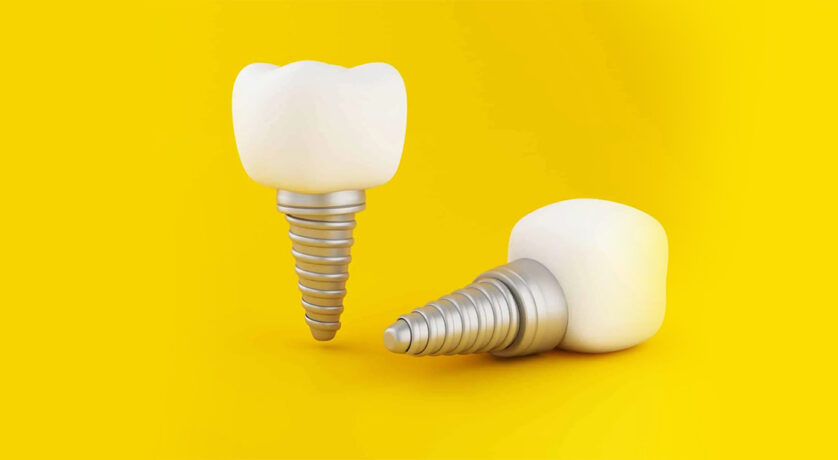
Dental implants in Philadelphia, PA, can be used to replace one or more teeth, depending on what is needed for the patient. There are many benefits associated with dental implants, such as increased comfort and improved speech quality.
However, there is always some risk involved when undergoing dental procedures like this, so it’s important to consult a dentist near you before going through with it.
What are Dental Implants, and What Types of Them Exist?
Dental implants are dental restorations that replace a missing tooth. They are mostly made of titanium, but you can also get them in other versions.
Teeth implants near you come in different types that serve different purposes:
- Endosteal implants are the conventional posts that are fixed on the jaw bone to anchor the teeth. It is crucial to have sufficient bone density to have the implants fixed.
- Subperiosteal implants. These are ideal if you lack sufficient bone support, as the dentist will fix the implants above the jaw. A metal framework is fixed on the jaw to offer support for the implants.
How Do They Work?
Implants are dental devices used for the replacement of tooth roots. They help with the dental arch, and often patients who have lost one or more teeth can regain their chewing function, bite-size, speech quality, facial appearance, and dental health as well.
Endosteal implants require drilling to be fixed. Subperiosteal implants are placed on top of the jawbone but beneath the gums. The dentist can use metal support to anchor the implants in place.
What is the Dental Implantation Procedure?
The dental implantation procedure consists of the following:
- Preparatory dental examination
The dentist will begin the process with an examination to determine if the implants are right for you. If you lack the necessary bone density, the dentist may recommend a bone graft to stimulate new bone growth. You may also opt for other options like subperiosteal implants, bridges, or dentures if you don’t want a bone grafting procedure.
- Fixing the Implants
The dentist will open the gums to fix the screws on the bone. The gums are stitched back to facilitate healing.
It can take a few months to have the gums heal and the bone to fuse with the implants.
- Placing the abutment and crowns
The abutment connects the implants and crowns in place. On the final visit, the dentist will fix the crowns.
What are the Benefits of Implants?
Dental implants are a long-term dental solution for the replacement of missing teeth. Implants can be used in combination with dentures or bridges to replace one, two, or more teeth.
Implants have numerous benefits including natural appearance; stability that won’t change with dental work or gum disease. However, the primary benefit of teeth implants is preventing bone loss. Having missing teeth for an extended time can cause the supporting bone to deteriorate. Moreover, getting bridges and dentures only cover the gaps, but do not necessarily stop bone loss. The implants are fixed in the jaw and they fuse to the bone.
What are the Risks of Dental Implants?
The dental implant procedure is considered a safe and reliable method to replace missing teeth. However, there are potential risks associated with dental implantation that must be weighed against the benefits of dental implants for each person’s situation. The most common risk is infection from bacteria in the mouth or throat which can travel to the site where dental implants have been inserted.
The drawbacks of implants include:
- Dental implants can be more expensive than other dental restorations.
- Dental implant placement may require a surgical procedure that is associated with risks, including dental implant failure and infection.
- Dental implants are not always a dental treatment option for everyone because of other health conditions like diabetes or heart disease.
The risks may be higher than the benefits in some cases, and it is crucial to understand your options before making an irreversible decision. Talk with your dentist about whether dental implants are right for you.
Schedule an Appointment
Visit Dental Spa for more information about dental implants and other restorative dentistry in Philadelphia, PA.
What You Must Know Before Getting Invisalign®
September 2, 2021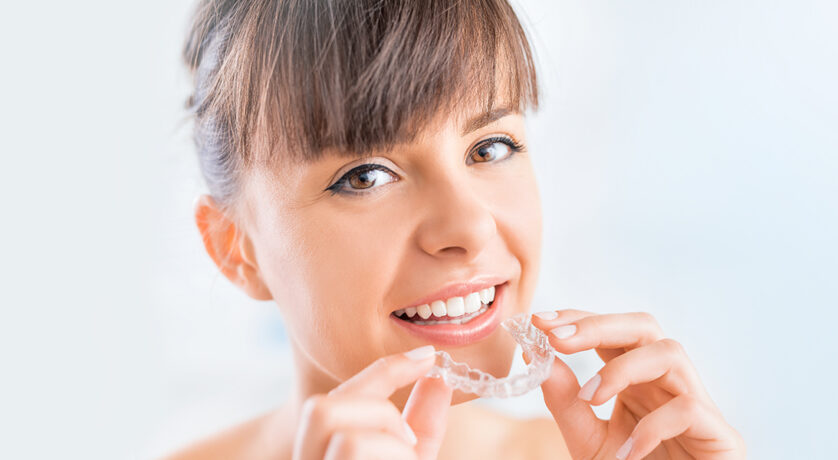
When it comes to straightening your teeth, you do not have to worry about having conspicuous metal braces that will undermine your aesthetic appeal. Instead, you can opt for Invisalign® in Philadelphia that is just as effective for realigning teeth like metal braces but is also considerate for your aesthetic concerns.
What Are Invisalign Aligners?
They are transparent tooth-shaped teeth aligners used to correct the positioning of teeth in the mouth. They are made into a plastic-like tray that covers your teeth completely and exerts pressure on them. The goal of these aligners is similar to traditional metal braces, which is to straighten and re-position malocclusions in your mouth.
Bad Breath 101: Everything You Need to Know
August 2, 2021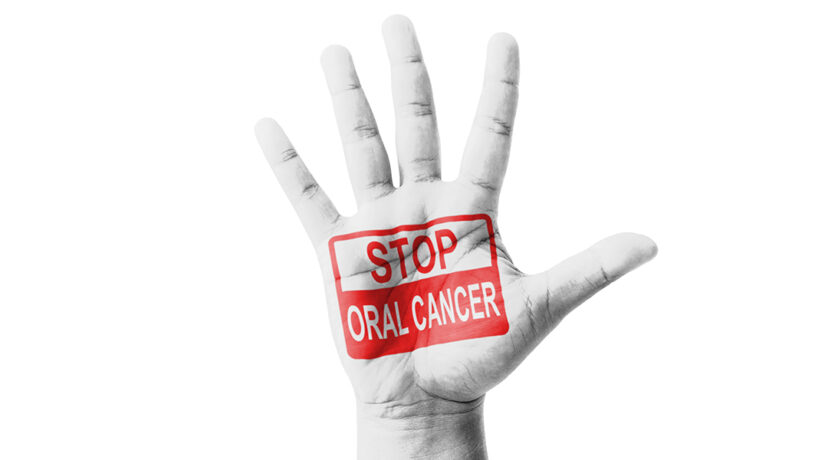
What Causes Bad Breath
Several causes can trigger bad breath and they include?
- Poor hygiene
Our oral cavity plays host to millions of bacteria that are important in breaking down food and produces an acid solution as a result. The acid solution attacks the enamel and erodes it, causing cavities and decay to form. Bad breath is a common symptom of decay and gum infection.
Also, if you fail to brush your teeth and gum properly, plaques can accumulate on the teeth and this can produce a bad odor.
Other habits like smoking cigars or cigarettes make bad odor even worse.
- Strong food and beverages
Eating food with onion and garlic or other foods with a strong odor can cause bad breath. During digestion, the stomach absorbs the oils from these foods that can pass into your bloodstream. This will cause a bad odor after about 72 hours. Also, taking beverages like coffee, and tea can also contribute to bad breath.
- Dry mouth
A dry mouth is a situation where you have low production of saliva. Saliva is vital to keeping your mouth clean as it off the food particles. Lack or low levels of saliva production will cause food particles to stick between the gums and teeth. This not only causes plaques but also increases the risk of decay.
Dry mouth can be caused by certain treatments, medication, or sleeping with your mouth open.
- Gum disease
Buildup tartar is the primary cause of gum disease. When you don’t brush properly or get professional teeth cleaning, tartar can accumulate in between the gums. Calculus carries bacteria that can cause the gums to recede and also pockets to form. These gum pockets trap food and bacteria that produce bad breath.
- Disease
Bad breath can also be a sign of certain diseases like diabetes or kidney problems. If you have a fishy smell it could be a sign of kidney or liver problems. Early signs of diabetes or high blood sugar can be characterized by a fruity breath.
GERD or Gastroesophageal Reflux Disorder can cause contents of the stomach to flow back to the mouth. This increases acid in the mouth, which attacks the teeth and also causes bad breath.
How Can You Get Rid of Halitosis?
The treatment of halitosis will vary based on the cause of bad breath. If there is an underlying cause, the dentist may refer you to your family doctor to have the condition addressed first. Some of the treatment strategies that can be used include:
- Fluoride toothpaste and mouth rinses. If bacterial buildup is the cause of bad breath, the dentist may recommend toothpaste or an antibacterial mouth rinse that will kill bacteria in the mouth.
- Treating the underlying dental disease. The dentist may refer you to a periodontist if you have gum disease. He will do a deep clean to get rid of tartar and also root planning.
- Fixing the dental restorations. Sometimes restorations like veneers, crowns, and dentures may trap food and cause bad breath. Visiting the best cosmetic dentist in Philly will help to fix the problem and get rid of the bad breath.
How Can You Prevent Bad Breath?
Maintaining proper hygiene can help get rid of plaques and bad breath. Ensure you brush, floss your gums and clean the tongue. Don’t forget to clean the dentures and other dental appliances to prevent plaque buildup.
Schedule an Appointment
Visit the Dental Spa for assessment if you suspect you have bad breath.
Put Some Life into Your Dental Visits Inquiring about Sedation Dentistry
July 1, 2021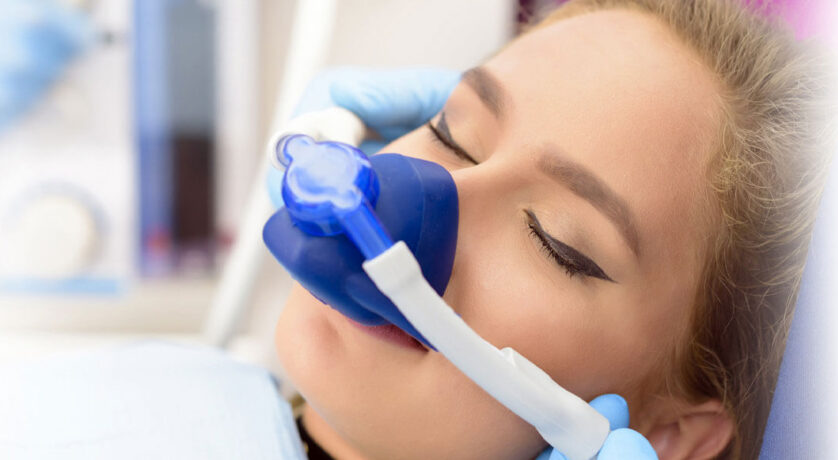
The dentist you discuss with about your dental anxiety is aware that the problem exists among many people. They will not hesitate to provide you information about sedation dentistry near you as a method to overcome your anxiousness and put your overall health in optimal condition. If you haven’t heard about sedation dentistry, you have not kept abreast with the latest in dentistry and are missing out on essential treatments merely to satisfy your fear of dentists.
Let us provide you some information about sedation dentistry and how it has helped people overcome the common dental phobia that compromised the health and functionality of their mouth and smile.
Defining Sedation Dentistry
The process of establishing a relaxed, easy, and calm state of mind is achieved by dental sedation delivered by dentists through the use of sedatives. Currently, dentists administer sedative drugs like tranquilizers, antianxiety medications, depressants, and nitrous oxide in various ways without needles. Therefore if you think needles poking in your arm or mouth are fearsome, you benefit by discussing the problem with the dentist in Philadelphia, PA,
Sedation Dentistry in Philadelphia, PA, provides information that sedation dentistry is different from other forms of anesthesia. While inhalation sedation like nitrous oxide raises your pain threshold, you still require local anesthesia in the mouth even when you receive the sedation dentistry technique. Sedation temporarily blocks your pain impulses from the affected teeth or gums, after which local anesthesia is administered in your mouth. As you are already sedated, you will likely not feel or remember the sensation of the local anesthesia injected into your mouth.
Remember, regardless of the type of sedation you receive, you must have a responsible caregiver accompany you to the procedure and back after your treatment. In addition, the caregiver must drive you to the appointment if you are advised oral medication before arriving at the dentist’s office.
How Sedation Dentistry Benefits You?
When you receive dental sedation, you will likely feel your dental procedure merely lasted for a few minutes when you may have spent hours in the dentist’s chair. It is why sedation dentistry in Philadelphia, PA, performs complicated dental procedures like smile makeovers or significant rebuilding procedures requiring multiple visits in fewer appointments.
Suppose you are reluctant to visit your dentist or routine cleanings or even enhance the appearance of your smile. In that case, you receive help from the Philadelphia dentist to overcome your anxiety or fears by talking to them about dental sedation.
What Kind of Sedation Do You Receive for Your Treatment?
The level of sedation you receive will depend on the treatment you are undergoing. So long as you are honest with your dentist and express your concerns to them, they recommend the anesthetic option best suited for your specific requirement.
Procedures like routine exams and cleanings are not painful and will not cause any harm to your mouth. However, if you are anxious about the process, you can request inhalation sedation from the dentist at a nominal fee of $ 50-$ 60. However, in most cases, you will likely not spend extra money on cleaning and exams, knowing the only discomfort you experience during the procedure is when the hygienist cleans your teeth.
In most cases, you will likely receive moderate sedation allowing you to breathe independently and respond to verbal and physical stimulation. Dentists dispense moderate sedation before your appointment to diminish the awareness of pain, sounds, and smell. You receive instructions to take the medicines before being driven down for your meeting by your caregiver. You receive additional medications after you arrive at your appointment to ensure you are comfortable.
If you are undergoing a complicated procedure, you will likely receive deep sedation, and the effects of the sedative remain with you for hours after your procedure.
The days when you avoided dental visits because of phobia or anxiety are long gone. Henceforth it is your responsibility to overcome your embarrassment of talking to the dentist about your fears to receive a solution that helps you get all the dental treatments you need without making any excuses.
Understand Which Sleep Apnea Treatment Works Best for You
June 1, 2021
You may not be aware of your problem, thinking your sleep cycle is regular. However, snoring is an irritating symptom of sleep apnea which could wake up your bed partner. Your loud snoring can keep your bed partner awake and irritated, causing unwanted disputes between you two.
If your bed partner reports about your loud snoring, it is time for you to get yourself evaluated for sleep apnea from the dentist in Philadelphia, PA, to receive treatment for the condition, which causes several health complications.
What Health Complications Can Sleep Apnea Cause?
Sleep apnea can leave behind multiple health complications besides giving you exhausted during the day. If left untreated, sleep apnea can trigger mental health issues, contribute to memory loss, lead to poor immune function, and increase your risk of heart failure.
Treatments available for sleep apnea are expensive and often inaccessible for most. However, you can make some lifestyle changes to improve your quality of life and sleep. Let us look at some sleep apnea treatments you can try from the comfort of your home.
Lifestyle Remedies for Sleep Apnea
When you seek sleep apnea treatment in Philadelphia, PA, you will likely receive a recommendation to lose weight if you are obese. Upper body obesity increases the risk of airway obstruction. These obstructions cause interruptions in your breathing repeatedly during the night, waking you up without leaving any memory of the same. Maintaining a healthy weight helps clear your airways to reduce sleep apnea symptoms.
Altering Your Sleep Position
Making small changes to your sleep position also works as a treatment for sleep apnea. The condition of sleep apnea is dependent on position, and sleeping on your back can worsen your symptoms. You may find it better to sleep on your sides instead of your back, helping your breathing return to normal. However, sleeping on the back does not help children who may also have sleep apnea.
Using A Humidifier
Sleep apnea treatment near you recommend using a humidifier to add moisture to the air. The body’s respiratory system can become irritated by dry air. Having a humidifier helps open your airways, decrease congestion and encourage clear breathing.
Avoid Alcohol and Smoking
Lifestyle changes improve your health and encourage better sleeping habits. Consider quitting smoking and alcohol if you are indulging in these habits. Alcohol relaxes throat muscles controlling your breathing. Alcohol leads to snoring and your interrupted sleep cycle. Your airways can become inflamed, blocking your airflow.
Similarly, tobacco contributes to inflammation and swelling of the airways to worsen your snoring and sleep apnea. Studies conducted some time ago identified smoking as a risk factor for developing sleep apnea. Therefore if you prepare yourself to quit smoking, you may have a sleep apnea treatment available at home.
Using Dental Appliances
Alternatively, you can contact the dentist near you for a dental appliance developed for sleep apnea by dentists that help to keep your airway open while you sleep.
Dentists have developed two major categories of oral appliances. They are mandibular elevation devices and tongue-sustaining devices. Both devices work by moving your jaw or tongue in a forward position to decrease obstruction in the back of your throat. Oral appliances developed by dentists are similar to mouthguards and may encourage you to search for over-the-counter devices from drugstores or other supermarkets. However, the best option for you is to have a device customized by a dentist specifically for your mouth.
Oral appliances for sleep apnea are supported by the American Academy of dental sleep medicine as an effective remedy for sleep apnea.
Many people affected by sleep apnea cannot adhere to the conventional CPAP device requiring them to wear a mask over their nose throughout the night. Oral appliances customized by dentists are comfortable to wear, affordable, and portable, making them a better option for patients looking for a conservative method to deal with sleep apnea.
The treatments spoken about in this blog and lifestyle changes help reduce sleep apnea symptoms. However, if you are affected by this condition must have yourself evaluated by a sleep medicine specialist who may recommend traditional treatments. You need to discuss your situation with your doctor before pursuing any remedy mentioned in this blog.
Partial Removable Dentures As An Effective Teeth Restoration
May 1, 2021
Partial removable dentures are porcelain and plastic material custom-made from mouth models in which artificial teeth are attached and held in place by a metal framework. They usually contain the missing teeth from the patient’s mouth, I.e., one or more teeth remain in the upper and lower jaw.
Types Of Partial Dentures
Flexible Dentures
This is usually a soft plastic mold that is custom-made to fit the patient’s mouth. According to its name, this denture is flexible, lightweight, and looks like natural teeth. Flexible dentures are best suited for patients who do not want metals or acrylic dentures. They are a temporary option and are quite expensive.
Fixed bridge
This best suits people who have a few missing teeth and some natural teeth at the ends of the mouth. A fixed bridge usually stays in the mouth and is brushed and flossed like natural teeth. It has Pontic in between, which are the replacement teeth, and has one crown at both ends. However, the fixed bridge has some issues and could expose healthy teeth to tooth decay as they are meant to accept the crown because they are below.
Cast Metal Removable Partial Denture
This consists of a metal frame used to hold one or more artificial replacement teeth in place. The artificial teeth are made of acrylic resin with a framework of metal which makes them durable. This is a very popular type of denture.
Implant-supported fixed bridge.
The implant-supported fixed bridge is an option for patients who do not want to destroy their healthy teeth structure and yet have too many missing teeth that won’t allow a fixed bridge.
The bridge is carried by a chain of implants, with enough needed implants that complete the arch of teeth. The replacement tooth roots are made of bio compatible titanium.
Acrylic removable partial dentures.
This has a bulky base attached to the natural teeth with clasps made of metal. This option is a temporary solution and gives commendable results in eating and talking because of its bulky acrylic base that helps reduce the risk of breakage.
Expectations Of The Partial Removable Dentures.
Learning how to wear dentures might require a bit of practice when starting. Dentures may feel a bit weighty during the first few months of getting them, but you will get used to it. To know the areas in your mouth that need adjustment, your Dentist might ask that the dentures be worn every time. The Dentist would recommend the time duration each day that the dentures should be worn and strictly followed for great results.
When trying to adjust or adapt to the new dentures, it would be best to avoid sticky and hard food. It’s preferable to start with soft food cut into small bits while chewing evenly on both sides of the mouth to share the pressure. Eating more on one side of the mouth can lead to injury in that area.
You should also follow all the Dentist’s precautions to not end up with injuries or damage to the new dentures. It is normal to experience difficulty when trying to pronounce some words in the first few weeks, but it will only get better with time.
Before deciding to get a Removable partial denture, you should first visit your Dentist for advice and book an appointment. If you do not have a personal dentist, you can search for removable partial dentures near you to get a local listing of dental clinics near or book an appointment with a dentist.
While you can have any dentist work on your smile, you can get the best result by booking an appointment with a Dentist in Philadelphia PA, by searching for removable partial dentures in Philadelphia, PA.
A Quick Brief About Orthodontics Treatment
April 1, 2021
The tooth of the upper and lower jaw needs to join neatly together. When they don’t, it raises the threat of tooth decay and gum-based diseases. Orthodontics is a branch that diagnoses and fixes teeth/jaw alignment troubles using devices such as braces and aligners.
What Causes Orthodontic Problems?
Orthodontic Problems can be caused by:
- Trauma
- Thumb-sucking
- Premature loss of teeth
Benefits of Orthodontic Treatment
The benefits of orthodontics go beyond just smile straightening. They can additionally boost your immune system, improve your periodontal health, and correct the jaw misalignment troubles that may be affecting your capability to eat and speak.
Here at The Dental Spa, we offer dental emergencies in Philadelphia, PA to improve your oral and overall health. Read on to learn more.
Examples of Orthodontic Treatments
A vary of orthodontic devices may additionally be used to fix teeth-related issues or to hold them in place. These include:
- Braces
Tiny brackets are connected to the front or again of every tooth, and a wire is tied to them. The wire slowly strikes the teeth.
- Clear Aligners
Clear aligners are additionally regarded as ‘invisible braces.’ They are clear molded plastic pieces that are placed over the affected teeth. While you typically put on clear aligners for 20–22 hours a day, you are in a position to take them out to eat, drink, and going out at a public place.
- Elastics
They are small rubber bands spread out between the top and lower brackets to treat malocclusions types by putting more pressure to set teeth in the right place. They can stay from two weeks to few months.
- Plate
A plate in orthodontics is a plastic-made dental device that sits around and behind the teeth. It makes use of wires and springs to push teeth gently into a unique position or to hold them in place. As compared to the braces, the plate can be removed from the mouth.
Why Is Orthodontic Treatment Important?
The intention of orthodontic treatment for adults in Philadelphia, PA at The Dental Spa Orthodontics is to straighten your teeth with the use of braces, retainers, and aligners. Treatment mainly begins in the pre-teen or teenage years. However, adults can also additionally get orthodontic treatment. This is in the case of:
- Crowded teeth
- Gaps between your teeth
- Crooked teeth
- Overbite or under bite
- Upper and decrease tooth that does now not meet
The Stages of Orthodontic Treatment
Orthodontic treatment normally takes between six and thirty months to complete. The whole treatment time will rely on the kind of malocclusion, the severity, and which kind of braces are used to deal with it.
Stage 1: Planning
In this stage, the skilled orthodontist at The Dental Spa will conduct a specific diagnosis. For this, medical and dental assessments are taken to learn about the model and digital impressions using panoramic x-rays.
Using the facts collected, the dentist can create computer-generated images to plan orthodontic treatment and predict how it must progress. Orthodontist/dentist in Philadelphia, PA also take “before, during, and after” pictures to examine how the treatment is progressing for every patient.
Stage 2: Device Recommendation for Proper Tooth Alignment
After making a diagnosis and creating a customized orthodontic treatment plan for the patient, the orthodontist will recommend the first-class orthodontic device and put them in place. Devices used at The Dental Spa encompass traditional metal-based braces, ceramic braces, and clear aligners.
No matter what you have, you need to schedule dental check-ups periodically at the top dentist office in Philadelphia, PA, to make sure that the dental device is working efficiently and the orthodontic treatment is going as planned.
Stage 3: Retention
Once the previous stage has been completed and the tooth is in suitable alignment, all orthodontic devices will be removed at the retention stage. A customized retainer will then be created for the patient to wear for a specified period to make sure that the tooth does not shift again to its unique positions alongside the gum line.
To know more about Orthodontic Treatment near me, contact us at cosmetic dentistry in Philadelphia, PA.
The Effectiveness of Oral Sedation in Dentistry
March 1, 2021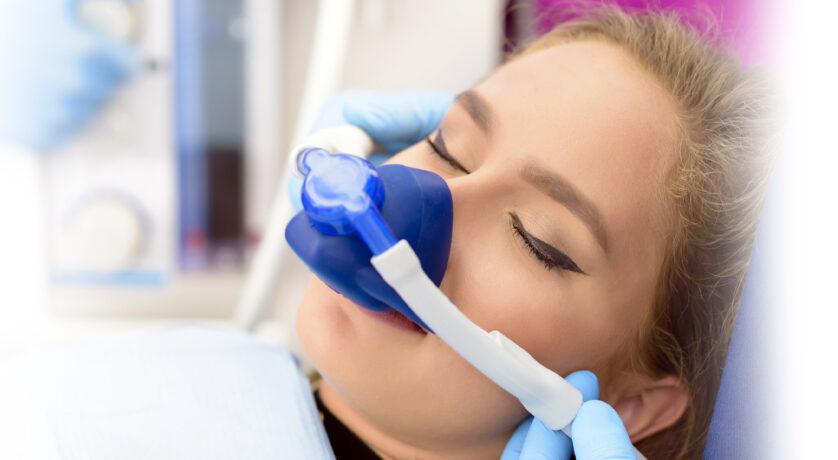
The process of oral sedation dentistry involves using sedative medicines recommended for oral ingestion by the patient. Oral sedation dentistry is also helpful to increase the effectiveness of local anaesthesia. The process is used by the cosmetic dentist in Philadelphia to facilitate dental procedures and reduce anxiety among patients.
Why Must You Seek Sedation Dentistry If Anxious About Dental Visits?
Suppose you are frequently avoiding dental visits, fearing pain or anxiousness, you can get the treatments you need without any concerns. Oral sedation dentistry involves using medicines that help patients relax in the dentist’s chair eventually.
The process of oral sedation is beneficial to make the patient feel relaxed and increase their cooperation. Research reveals that sedation dentistry is effective in patients with epilepsy, cardiovascular disease, diabetes, and other health conditions. Best of all, sedation dentistry is affordable for dentists and patients compared to other sedation methods.
How Is Sedation Dentistry Administered?
The general dentist in Philadelphia, PA, uses one or more medicines to generate a state of depression in the central nervous system in the patient. Patients remain aware of their surroundings and responsive to any requests by dentists. It ensures dentists can make verbal contact with the patient during different stages of the process of sedation.
Patients receiving oral sedation usually feel their procedure lasted for a few minutes when in reality, they may have spent more than hours in the dentist’s chair. Patients using medicines for other health conditions must discuss oral sedation with sedation dentistry in Philadelphia, PA, providing their entire medical history and a list of medications they take. However, sedation dentistry is proven as an effective method for a vast majority of patients affected by dental anxiety. The process of oral sedation helps reduce the sensation of passing them.
Sedation dentistry allows dentists to treat complicated and critical conditions in fewer appointments than they would have with traditional forms of sedation. As the patient is entirely comfortable, sedation dentistry is useful. It helps prevent stiffening of the tooth muscles or formation of sores after being in the dentist’s chair for a prolonged period. If sedation dentistry allows patients to relax when undergoing dental procedures, the technique also enables dentists to accomplish more treatments within fewer appointments. It is why oral sedation dentistry is currently the most familiar technique used by dentists in the US and Canada.
Benefits of Sedation Dentistry
Suppose you are reluctant to change the appearance of your smile because you are scared and anxious about undergoing lengthy and complicated dental procedures. In that case, sedation dentistry can comfort you during the treatment process and help you have a smile you are proud to show off.
Sedation dentistry addresses the fears that keep you from visiting dentists regularly. With the technique of sedation dentistry, you are likely to receive the recommended routine dental care. The care you receive results in better oral health accompanied by better overall health. It also prevents the need for intensive dental treatments that become necessary when you neglect regular dental visits.
What Are the Modalities of Sedation Dentistry?
Dentists use varying degrees of sedative methods depending on the treatment the patient expects to receive. Sedation dentistry in Philadelphia chooses to sedation dentistry option best suited for the patient depending on the treatments they need to perform and the procedure’s duration besides the patients’ level of anxiety. Dentists determine the level of sedation the patient needs. However, too anxious patients can request more potent sedatives if they are uncomfortable with the procedure.
The levels of sedation provided by dentists are mild, moderate, and profound. The Academy of General Dentistry has confirmed sedation as safe, but patients must discuss what is involved or expected before the procedure. To ensure the sedation dentist uses appropriate sedation levels, they will require the patient’s medical history and a list of all medications they take, including over-the-counter products and herbal supplements.
Patients still require local anaesthesia when they are given the drugs for sedation dentistry. Sedation dentistry is for anxiety management, while pain management requires local anaesthesia. However, patients won’t realise when the injectables were administered in their mouths as they are entirely relaxed.
Patients receiving sedation dentistry must have someone accompany them to the dentist’s office. Driving back home by themselves is challenging, and having someone help them with the task proves helpful.
As can be seen, sedation dentistry is indeed an effective technique to calm anxious patients reluctant to seek dental treatments.
7 Tips to Handle Dental Emergency
October 1, 2020
What is Emergency Dentistry?
Dental emergencies can be experienced at least once in a lifetime and are curable if treated correctly. Although some might be fortunate enough not to encounter a dental emergency, those are rare. Emergency dental services focus on immediate dental treatment.
A recent study reveals that 22% of Americans suffer from dental emergencies or severe oral pain and need an emergency dental appointment. Cosmetic Dentistry in Philadelphia, PA, has several emergency dentists who focus on treating dental emergencies.
If the answer to any of the questions is in the affirmative, you are suffering from a dental emergency and need immediate dental care.
- Are you suffering from severe dental pain?
- Have you lost a tooth?
- Do you have a gum or teeth infection?
- Are you gums bleeding?
- Do you have loose teeth?
- Did you suffer from dental trauma?
An emergency dentist can treat your bleeding gum or severe dental pain immediately or can save a lost or knocked-out tooth. But you need to assess whether the dental ailment can be considered as a dental emergency or not. All toothaches are not a dental emergency; neither is a lost dental filling.
Tips to Handle Dental Emergency
Dental issues can be painful and irritating at moments. Apart from rushing to the emergency dentist, you can try following the tips to alleviate the pain and get dental emergencies treated.
#1: Identify Dental Emergency
All dental issues are not dental emergencies. Toothaches can wait, and you may not rush to the dentist in the middle of the night if the pain can be endured. A knocked-out tooth or bleeding from the gums need immediate medical attention and are dental emergencies. Swelling in the facial areas coupled with intense pain can be due to infections or some underlying issues that a dental expert should attend.
#2: Do not Panic
Although panicking is the natural reaction to an emergency, remaining calm can help you assess the situation. Instead of panicking, you can try inhaling and exhaling slowly to subside the tension. You can book an appointment with a dental clinic dealing with emergency dentistry in Philadelphia, PA.
#3: Use First-Aid Methods
It might not be possible to get the appointment of an emergency dentist immediately. You may try some homely first-aids to reduce the bleeding or to alleviate the intense pain. You can preserve a knocked-out tooth in a container of milk until attending the dentist.
Using an alternative hot and cold compression can help to reduce swelling and pain. Rinsing with salt and water can help to reduce gum infection and bleeding.
#4: Lessen the Risk of Dental Emergency
Adopting certain safety precautions and visiting the dentist at regular intervals can reduce dental emergencies. Wearing mouthguards during sports activities or getting treated for dental cavities and infections can help to lower the cases of dental emergencies. Following the dentist’s instructions and avoiding biting hard substances can also reduce the risk of a chipped tooth.
#5: Preparation is the Key
You should be prepared to handle dental emergencies. Keeping first-aids and gauzes, bandages, an antiseptic mouthwash can come in handy at the time of crisis. You can have the contact number of an emergency dentist in speed dial.
#6: Plan
The planning is the most vital aspect of treatment. When you fail to plan, the oversight can cost your teeth and deteriorate the dental health greatly. You can plan on the dental clinic to visit, and choosing a reliable clinic is essential.
#7: Dental Clinic or Hospital?
Depending upon the dental emergency, it would be wise to choose a dental clinic or dental hospital. All dental clinics might not be equipped to treat dental trauma, jaw fractures, jaw dislocation, or soft tissues’ laceration. A hospital with indoor treatment facilities can provide the necessary treatment.
The Dental Spa in Philadelphia, PA, has experienced dentists, 110 years of combined experience a pool of dedicated staff who deliver comprehensive dental care. Book an appointment and experience the difference.
